How to Become a Fragrance Chemist: The PhD Path Explained
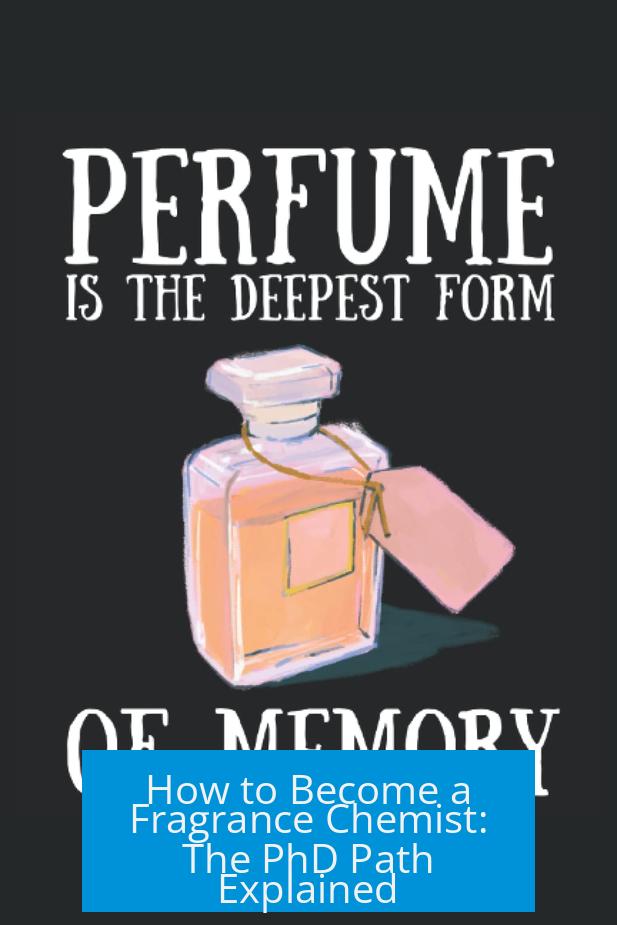
Becoming a fragrance chemist typically requires a strong foundation in organic chemistry, often gained through a PhD in organic chemistry, followed by specific on-the-job training within the fragrance industry. There is no dedicated PhD specifically in fragrance chemistry, but many professionals enter the field with advanced degrees in related chemistry disciplines and then learn the trade through industry experience. This article outlines the academic route, industry insights, networking opportunities, and nature of the work involved in fragrance chemistry.
Educational Background for Fragrance Chemists
PhD in Organic Chemistry as the Foundation
Most fragrance chemists hold a PhD in organic chemistry or a closely related discipline. Such a degree provides a solid foundation in chemical synthesis, analytical techniques, and molecular interactions, all vital for developing fragrance molecules.
- Advanced knowledge in organic reaction mechanisms is central to designing and synthesizing new fragrance compounds.
- Analytical skills acquired during PhD research allow chemists to characterize fragrance ingredients precisely.
- Many professionals enter fragrance companies after completing their PhD and receive specific industry training post-hiring.
Having a PhD in organic chemistry is more critical than specialized experience in fragrance before employment because industry companies tend to train new hires on fragrance-specific methods within weeks to months of joining.
No Dedicated PhD Programs in Fragrance Chemistry
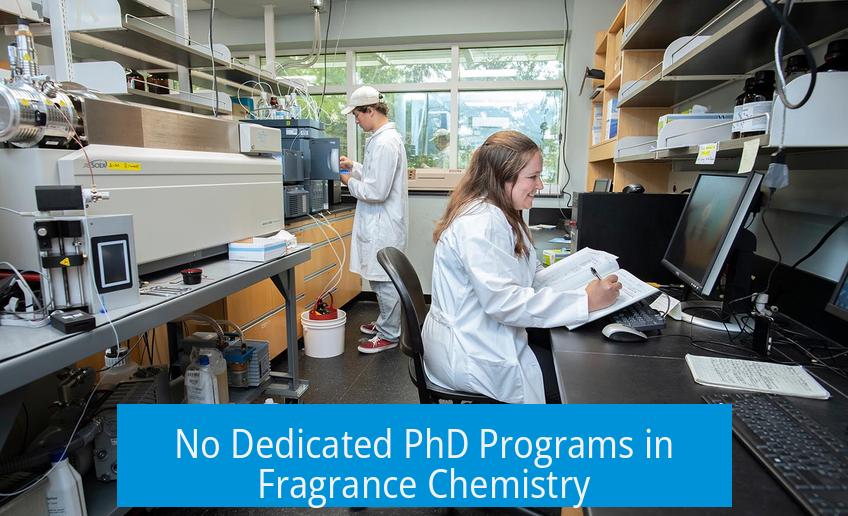
Currently, no PhD programs focus exclusively on fragrance chemistry. While some institutions offer courses or majors in aroma sciences, these are limited in scope and generally do not substitute for a traditional organic chemistry doctorate.
Prospective fragrance chemists are advised to pursue conventional organic chemistry PhDs. Specialized fragrance knowledge is usually gained on the job rather than through academic degrees.
Possibility of Industry-Sponsored PhD Work
Some fragrance companies may support PhD projects, allowing students to conduct research within an industrial setting. For example, companies like Givaudan sometimes sponsor PhD candidates. This arrangement can provide direct exposure to fragrance science and networking opportunities.
Industry Landscape and Employment Insights
Major Companies in Fragrance Chemistry
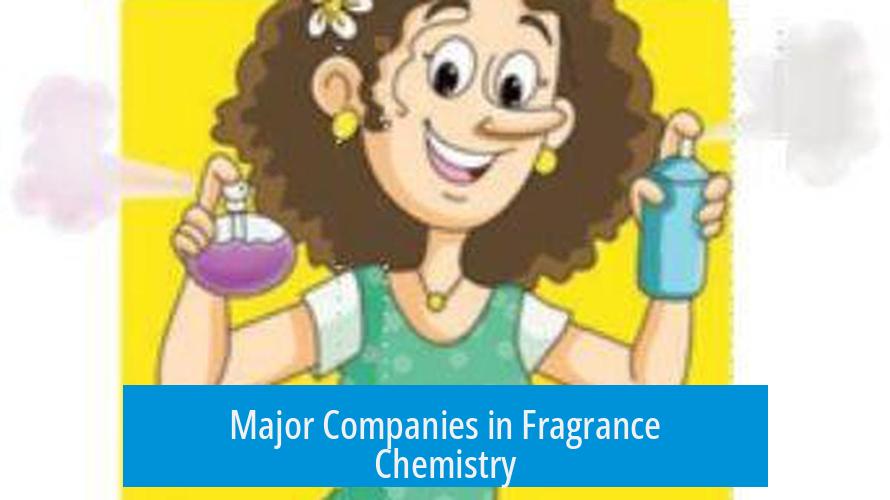
The fragrance industry comprises several large multinational firms, and knowledge of these employers is essential for job seekers:
- Givaudan: World’s largest fragrance and flavor company.
- International Flavors & Fragrances (IFF): Major player with global reach.
- Symrise: Known for innovative fragrance ingredients.
- Firmenich: Swiss company specializing in fragrance creation.
- Takasago: Japanese fragrance and flavor firm.
- Bell Flavors & Fragrances: Recognized for unique aroma compounds.
- Bedoukian Research: Smaller firm focused on synthesis of fragrance ingredients, ideal for those interested in organic synthesis.
Most large fragrance companies focus on compounding and formulation rather than synthesis from raw materials, which is often conducted by specialized firms like Bedoukian.
Location and Industry Challenges
The bulk of the fragrance industry workforce is concentrated in northern New Jersey, USA. This area hosts many headquarters and research facilities but may not be attractive for all due to lifestyle considerations.
Job hunting in this sector can be competitive. Many firms prefer candidates with internal experience or industry connections, making entry without prior experience challenging.
Learning the Trade after Hiring
After obtaining a PhD, fragrance chemists typically undergo a period of company-specific training. This phase familiarizes them with:
- The nuances of fragrance compound preparation.
- Blending techniques for scent formulation.
- Analytical methods like gas chromatography and mass spectrometry tailored to fragrance molecules.
Such training usually lasts a few weeks to months and is critical for successful integration into the company’s fragrance development process.
Industry Associations and Networking Opportunities
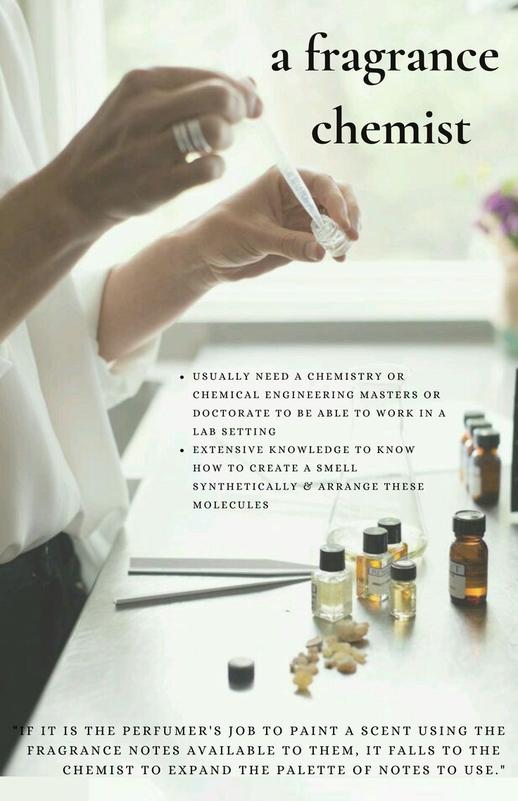
Society of Cosmetic Chemists (SCC)
The SCC is a valuable organization for aspiring fragrance chemists. It offers:
- Access to technical resources and publications.
- Professional networking events and conferences.
- Educational and funding opportunities for young chemists.
Joining the SCC helps build connections with industry professionals and stay informed about emerging trends in fragrance and cosmetic chemistry.
Other Professional Groups and Resources
Besides the SCC, other entities and trade publications focus on fragrance science. Subscribing to dedicated fragrance industry magazines and attending specialized conferences provides insights into the latest research and commercial developments.
The Nature of Work in Fragrance Chemistry
The Interplay between Art and Science
The fragrance industry uniquely combines scientific rigor with creative artistry. While fragrance chemists focus on the chemical properties and synthesis of compounds, the ultimate fragrance formulation depends greatly on expert perfumers.
- Perfumers often rely on intuitive understanding and experience in blending thousands of chemicals.
- Fragrance chemistry research supports these artists by developing new ingredients with desired olfactory properties.
- Successful fragrance design hinges on collaboration between scientists and perfumers.
Advances in Research and Technology
Emerging trends in fragrance chemistry involve cutting-edge techniques such as:
- Gas Chromatography-Mass Spectrometry (GC-MS): Used for analyzing volatile compounds.
- Machine Learning: Applied for predicting odor profiles based on molecular structure.
- Biotechnology: Genetic engineering of microbes to produce fragrance ingredients sustainably.
These innovative approaches help move fragrance science beyond a purely empirical art toward a more predictive and sustainable practice.
Advice for Aspiring Fragrance Chemists
Reaching Out to Experts
Networking with established fragrance scientists can open doors. For instance, contacting renowned experts like Roman Kaiser (formerly of Givaudan) can yield valuable guidance.
Starting Points in Fragrance Studies
Exploring classic fragrances such as Cologne 1951 is recommended for newcomers. Analyzing well-studied perfumes provides practical understanding of ingredient chemistry and formulation.
Engagement in Professional Societies
Participating actively in groups like the Society of Cosmetic Chemists facilitates:
- Access to mentorship.
- Information on scholarships and grants.
- Industry insights relevant to fragrance chemistry.
Summary of Key Points
- The best academic path is a PhD in organic chemistry; there is no dedicated fragrance chemistry PhD.
- Fragrance companies provide specialized training after hiring; hands-on learning is essential.
- Major firms include Givaudan, IFF, Symrise, Firmenich, Takasago, and smaller firms like Bedoukian Research.
- The field blends art with science; perfumers are artists supported by chemists.
- Networking via the Society of Cosmetic Chemists and direct contact with experts is vital to entering the field.
- Emerging technologies include machine learning for scent prediction and microbial synthesis of fragrance molecules.
How to Become a Fragrance Chemist? The PhD Path Explained
So, you want to become a fragrance chemist? Here’s the truth: there is no dedicated PhD in fragrance chemistry. Instead, a classical PhD in organic chemistry is your best ticket in. Once you’re armed with a solid chemistry foundation, you can learn the fragrant specifics on the job at major fragrance companies.
Yes, that means no glamorous doctorate titled “Perfume Wizardry.” But don’t let that daunt you. The path is well-trodden—though perhaps more winding—and the rewards, both aromatic and intellectual, can be very sweet.
The Myth of the “Fragrance Chemistry PhD”
Despite what your nose might tell you, universities generally do not offer PhDs specifically in fragrance chemistry. Aroma sciences, a niche subject offered at a handful of institutions worldwide, may sound tempting, but seasoned insiders advise against pursuing it. They say: stick to classical organic chemistry—the sturdy backbone that underpins all fragrance formulation and innovation.
Why? Because fragrance chemistry is a hybrid beast. The science centers on organic synthesis and analytical chemistry. But the artistry—the crafting of captivating scents—is largely driven by perfumers, who often come from backgrounds quite different than pure chemistry.
Building Your Chemistry Foundation
Your goal is a PhD in organic chemistry, with a strong focus on synthesis, analytical techniques, and possibly biochemistry. This rigorous training builds the versatile skill set fragrance firms prize. According to insiders, 90% of fragrance industry jobs concentrate around northern New Jersey. It’s not a paradise, but it’s home to the giants like Givaudan, IFF, Firmenich, and Symrise.
After your PhD, companies often give you on-the-job training. It’s like joining a secret club—you walk in with solid chemistry knowledge, then learn the trade specifics within weeks or months. In fact, many professionals start just like this. So don’t fret about not having direct “fragrance-specific” experience during your doctorate.
Industry Giants and Niche Players
You might picture working for titans named Givaudan or IFF, but the fragrance world also includes niche marvels like Bedoukian Research in Danbury, Connecticut. Known for flavor and fragrance ingredient synthesis, it is smaller but highly regarded. So while the majority of heavyweight fragrance companies dominate New Jersey, specialized opportunities exist elsewhere.
Keep in mind, these big companies are notoriously selective. One insider shared applying to 50-100 positions and facing rejection for all, lamenting that many companies hire “from within.” This underscores the importance of networking and industry connections.
Networking: Your Unsung Hero
Speaking of connections, joining professional groups like the Society of Cosmetic Chemists (SCC) is a brilliant strategy. The SCC welcomes young chemists, offers funding and learning opportunities, and provides a direct pathway to the industry. Local affiliates, often found in major cities like Boston, organize events that let you mingle with professionals and experts.
Think of the SCC as your fragrance chemistry bridge—from academic labs to scent factories. Plus, staying updated with trade magazines and industry news helps you smell out emerging trends and job openings.
Can You Do a PhD In the Industry?
If the traditional academic route isn’t your jam, consider exploring PhD opportunities within companies themselves. For example, Givaudan reportedly accepts a handful of PhD students annually. This immersive approach lets you conduct original research while building industry ties and practical skills.
It’s worth asking your advisor about this avenue or reaching out directly to companies. It might require relocation, but the payoff—a PhD plus direct fragrance industry experience—is compelling evidence for future employers.
The Science and Art of Fragrance Chemistry
Fragrance chemistry is not merely a chemical reaction set to music; it’s a delicate dance between science and art. The industry, centered around perfumers, masterfully blends over 2,000 chemicals to create products that evoke emotion and memory.
Interestingly, many renowned perfumers are not scientists but artists with an exquisite nose. So if you lean more toward the chemical side, your niche might be on the research and technology front rather than the perfumer’s palette.
Recent advances reveal exciting scientific frontiers. Machine learning algorithms attempt to predict scents based on molecular structures. Biotechnologists experiment with microbes to biosynthesize fragrance ingredients. There’s a growing integration of GC-MS analysis to study volatile compounds. This means fragrance chemists can engage in truly cutting-edge science, shaping future aromas.
Getting Started: Practical Tips
- Choose a classical organic chemistry PhD: Build a flexible chemical foundation that companies will value.
- Consider PhD-in-industry options: Reach out to corporations like Givaudan.
- Join the Society of Cosmetic Chemists: Network, learn, and access funding opportunities.
- Study classic fragrances: Starting with simple formulations like Cologne 1951 helps you connect theory with practice.
- Contact experts: Don’t be shy reaching out to industry scientists. Roman Kaiser from Givaudan, for example, is known to be approachable.
- Stay informed: Follow trade magazines and scientific literature to track industry trends and innovations.
Summary: Your Recipe to Become a Fragrance Chemist
| Step | Details |
|---|---|
| Education | Earn a PhD in classical organic chemistry; avoid the lure of aroma-science-specific degrees. |
| Industry Entry | Apply to major fragrance firms (Givaudan, IFF, Symrise) or niche research companies like Bedoukian Research. |
| On-the-Job Training | Learn fragrance-specific skills within months once hired; most companies do not expect you to arrive fully trained. |
| Networking | Join organizations such as the Society of Cosmetic Chemists for connections and opportunities. |
| Research Advances | Explore fields like microbial biosynthesis and AI-driven scent prediction to stay ahead. |
Final Thought
Becoming a fragrance chemist is less about finding a ready-made academic path and more about positioning yourself as an organic chemistry expert who can master this aromatic craft. Embrace the journey with curiosity, intellectual rigor, and a nose for opportunity.
Do you believe your chemistry skills have what it takes to crack the code of scent? The industry isn’t easy to get into, but with perseverance, the right PhD, and smart networking, you can make your mark. After all, who wouldn’t want a career mixing science and scent in one irresistible package?
What is the best PhD background to become a fragrance chemist?
A PhD in organic chemistry is the best foundation for fragrance chemistry. There is no dedicated PhD in fragrance chemistry. Companies often provide specific training after hiring.
Can I do a PhD directly related to fragrance chemistry?
No universities generally offer a PhD specifically in fragrance chemistry. Some schools offer aroma science, but it’s not widely recommended. Industry-based PhD options may exist with companies like Givaudan.
How do fragrance chemists learn the specific skills needed for the job?
Most fragrance chemists get hired with a strong chemistry background. The detailed skills and trade are usually learned on the job in the first weeks or months.
Which companies are key employers in the fragrance chemistry field?
Major firms include Givaudan, IFF, Symrise, Firmenich, Takasago, and smaller specialized companies like Bedoukian Research. Many are located in northern New Jersey, where most industry roles are found.
How can networking help in entering the fragrance chemistry industry?
Joining groups like the Society of Cosmetic Chemists offers learning and funding opportunities. Networking can also include contacting experts directly for advice and industry insights.


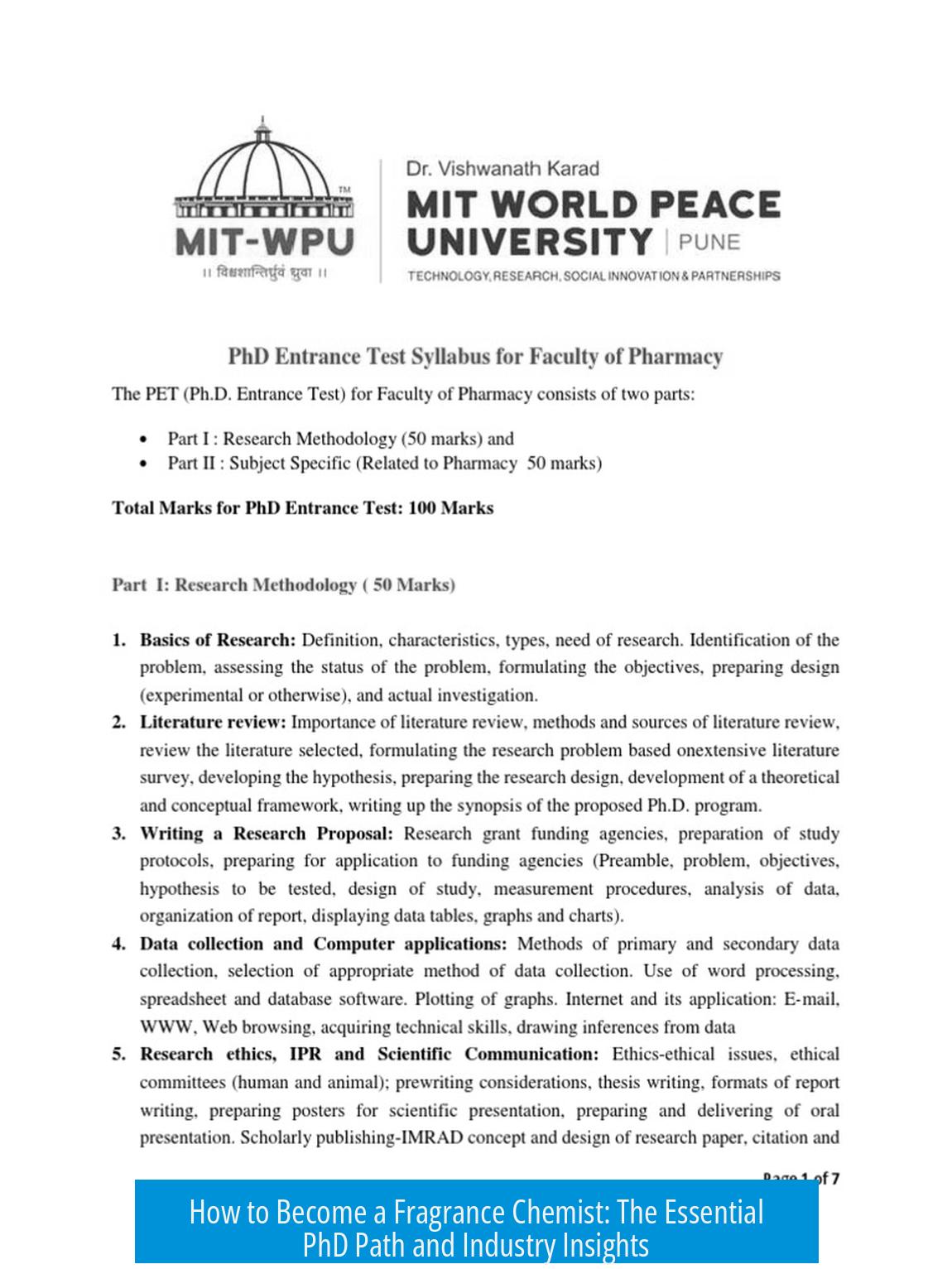


Leave a Comment